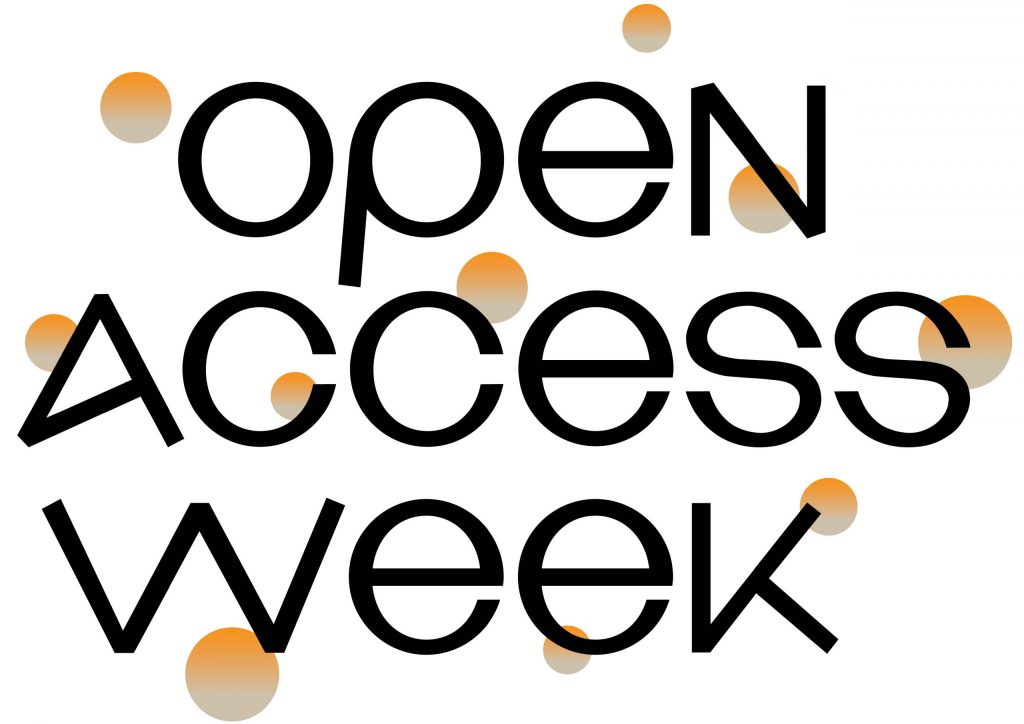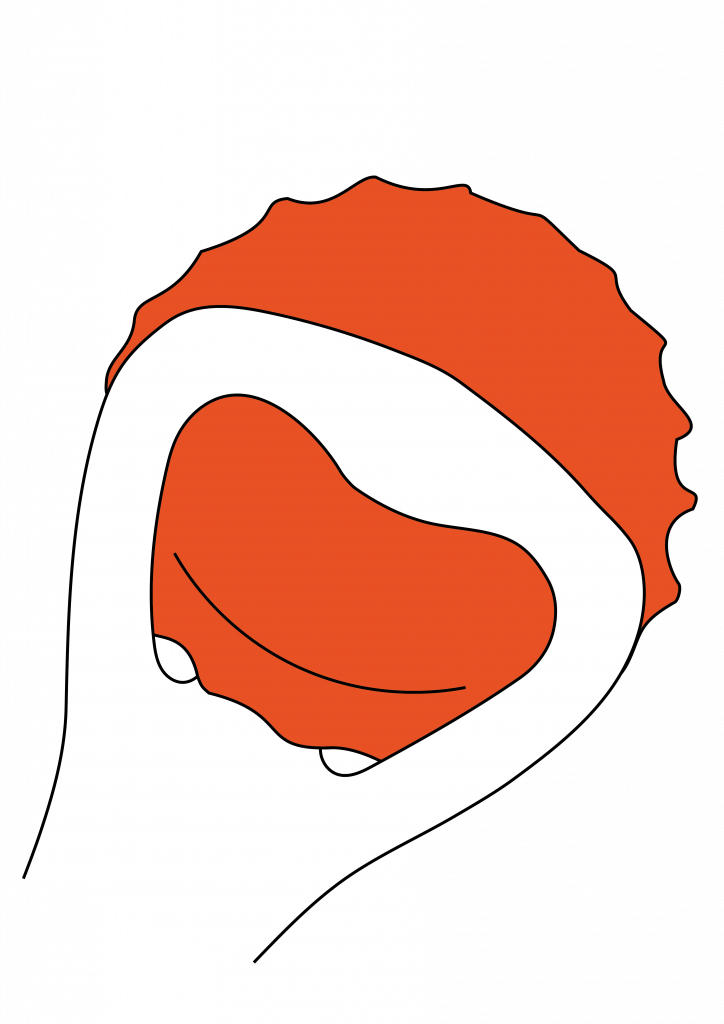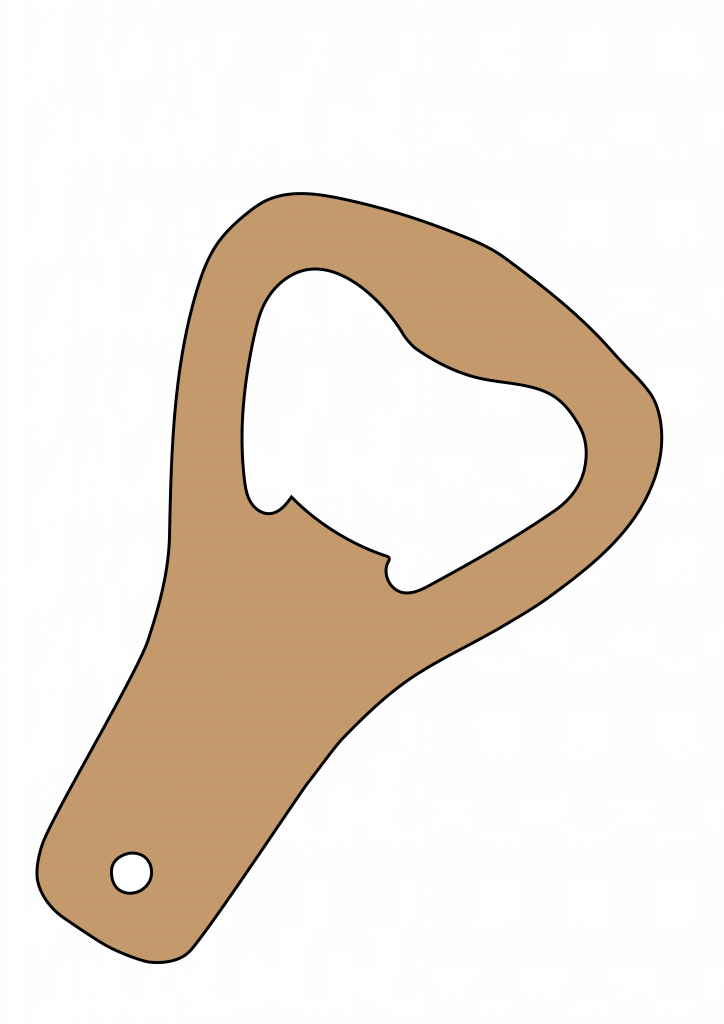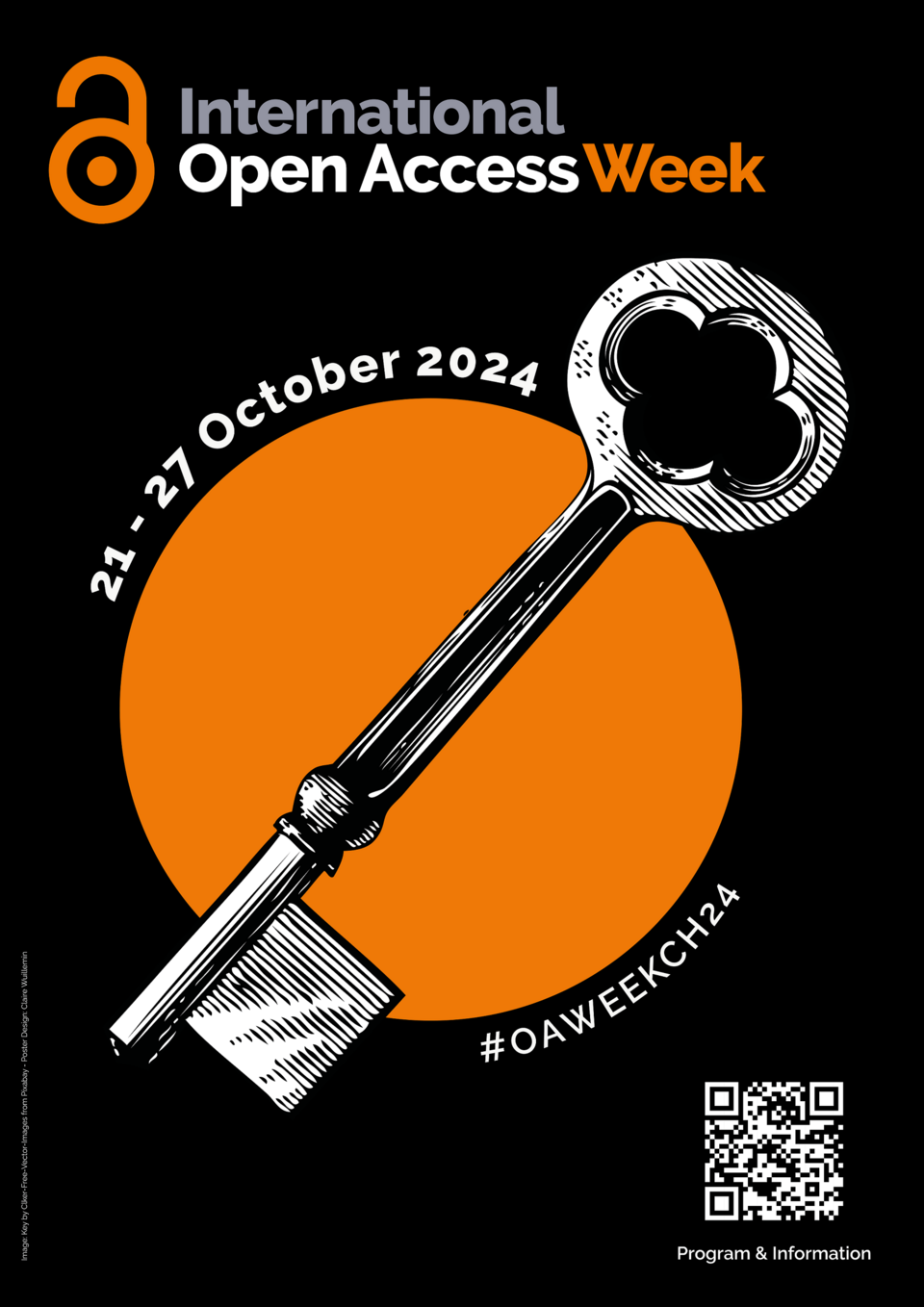
Facettenreiches Publizieren: Erfahrungen – Erfolge – Projekte
Online-Sessions, 21. – 25.10.2024, jeweils 16.00 – 17.00 Uhr
Podiumsdiskussion (hybrid), 24.10.2024, 17.00 – 18.30 Uhr
Agenda 2024

Montag, 21.10.2024, 16.00 – 17.00 Uhr
Do Open Access Publishing Agreements Work? – The Case of Top Tier Business Journals
Gernot Pruschak (Dozent, Institut Applied Data Science & Finance, BFH)
Zoom: Zugangslink
Mehr erfahren
Abstract
Open access publishing has become more and more popular in the last two decades. Only recently, open access deals, also called offsetting agreements, transformative agreements, or open access publishing agreements arose as incubators of open access publishing by waiving individual authors’ article processing charges. We ask the research question whether such open access publishing agreements managed to increase the share of open access publications in business research. To answer this research question, we conduct a bibliometric study among research articles, reviews and conference papers published in FT-50 journals between 2010 and 2019. We find that none of the FT-50 journals constitutes a gold open access journal (i.e. providing free access to all articles). Furthermore, our results show that the share of open access publishing among FT-50 journals is substantially lower than those from other disciplines. While junior scholars do not differ in their open access publishing behavior, the number of affiliated institutions and the number of affiliated countries have positive effects on open access publishing. We therefore call upon business research publishers and societies to establish gold open access journals, universities to educate junior scholars on open access publishing opportunities and national and supra-national agencies to negotiate open access publishing agreements on behalf of their dedicated research institutions.
Kurzvita Gernot Pruschak
Gernot Pruschak gained his PhD in Business and Economics from RWTH Aachen University in 2021 based on his dissertation Ethical and Responsible Behavior in Applied Empirical Research: Four Essays on Academic Practices in the Social Sciences. He now serves as an associate professor of Applied Data Science at the Business School of Bern University of Applied Sciences (BFH). His teaching encompasses principles of science and research methods. His research focuses on Metascience, Open Science, Scientific Integrity, and Leadership in Higher Education and Research. Gernot also serves as the president of the Scientific Integrity Board and a member of the Open Science Board of the BFH. Beyond institutional boundaries, he contributes as an Editorial Review Board member for Academy of Management Learning and Education and is a member of the Open Science Reviewer Pool and the Sounding Board for Big Deal Negotiations of swissuniversities.
Links
Profilseite BFH Gernot Pruschak
ORCID Gernot Pruschak

Dienstag, 22.10.2024, 16.00 – 17.00 Uhr
Multimedia content and third-party rights: The beauty and complexity of open science in art, design and music
Chiara Barbieri (Junior Researcher, Institute of Design, SUPSI)
Iolanda Pensa (Senior Researcher, Institute of Design, SUPSI)
Zoom: Zugangslink
Mehr erfahren
Abstract
Starting with a brief overview of the key features of data in the arts and humanities, we follow the research data throughout their lifecycle: from research planning to long-term sustainability. A series of case studies illustrate the main challenges towards the implementation of open access in the fields of arts, design and music. We offer a hands-on perspective and suggest some solutions in the form of best practices collected in a set of guidelines. The presentation is based on the results of the project Open Science for Arts, Design and Music (OS-ADM), co-funded by swissuniversities and led by SUPSI.
Kurzvita Chiara Barbieri
Chiara Barbieri is a junior researcher at the Institute of Design of SUPSI University of Applied Sciences and Arts of Southern Switzerland. She is a design historian with a research focus on the history of Italian graphic design and material culture.
Kurzvita Iolanda Pensa
Iolanda Pensa is a senior researcher and head of the research area “Culture and Territory” at the Institute of Design of SUPSI University of Applied Sciences and Arts of Southern Switzerland. She is a member of the Sounding Board Researchers for the Swiss Open Research Data policy and, as a volunteer, an active member of the Wikipedia and Creative Commons movements.
Links
Open Science in Arts, Design and Music (OS-ADM)
Zenodo Community

Mittwoch, 23.10.2024, 16.00 – 17.00 Uhr
Das E-Book Fachpaket Erziehungswissenschaft – Ein Crowdfunding der etwas anderen Art
Rainer Plappert (Leiter der Medienbearbeitung, UB Erlangen-Nürnberg, FAU)
Zoom: Zugangslink
Mehr erfahren
AbstractDer FID Erziehungswissenschaft und Bildungsforschung unterstützt die Open Access Transformation seit 2022 mit der Realisierung jährlicher E-Book-Pakete. Anders als vergleichbare Initiativen setzt der FID dabei auf verlagsungebundene und durch die Fachwissenschaft ausgewählte Fachpakete, für deren Auswahl eine Reihe inhaltlicher und formaler Kriterien entwickelt wurden. Die Finanzierung der Fachpakete erfolgte bis 2023 hauptsächlich auf der Basis eines Crowdfundings interessierter Bibliotheken sowie mit Unterstützung von Fördermitteln der DFG. Die inhaltlich-administrative Konzeption sowie die finanzielle Nachhaltigkeit dieses Transformationskonzepts werden mit Blick auf das Zugrunde liegende Konzept des Crowdfundings erläutert und kritisch hinterfragt.
Kurzvita Rainer Plappert
Dr. Rainer Plappert studierte Geschichte, Geographie und Nordistik. Seit 1999 an der UB Erlangen-Nürnberg beschäftigt und Leiter der Medienbearbeitung. Arbeitsschwerpunkte sind die Erwerbungskoordination und Lizenzierung der E-Medien, Betreuung von Fachreferaten sowie des Fachinformationsdienstes an der UB Erlangen-Nürnberg.

Donnerstag, 24.10.2024, 15.30 – 16.30 Uhr
Internes Netzwerktreffen
Vor Ort: PH Zürich, LAA-K021 (7. Stock)
Mehr erfahren
Das Netzwerk der Open-Access-Beauftragten an Pädagogischen Hochschulen (PH) und Fachhochschulen (FH) der Schweiz wurde 2020 gegründet und tauscht sich zwei- bis dreimal jährlich zu den wichtigsten Themen für die Umsetzung von Open Access aus.
Das Netzwerktreffen ist nicht öffentlich. Kontakt: valérie.andres@fhnw.ch

Donnerstag, 24.10.2024, 17.00 – 18.30 Uhr
Podiumsdiskussion: Open Access in Switzerland: Are we reaching the GOALs? (hybride Veranstaltung)
Alain Cortat (Founder and director, Éditions Alphil)
Barbara Preisig (Art historian and art critic, ZHdK / Co-editor B-N-L)
Stefan Sonderegger (Chief editor, CHSS)
Anna Picco-Schwendener (Project Manager, CCdigitallaw)
Suzanna Marazza (Legal Expert, CCdigitallaw)
Tobias Philipp (Open Access Coordinator, SNSF)
Moderation: Enrique Corredera Nilsson und Elena Šimukovič (ZHAW Hochschulbibliothek und Projekt «GOAL»)
Vor Ort: Link zur Anmeldung (beschränkte Platzzahl)
Veranstaltungsort: Eventspace Nüü ( Lagerstrasse 45, 8004 Zürich)
Zoom: Link zur Anmeldung
Mehr erfahren
Abstract
The year 2024 marks a significant reference point in the Swiss Open Access (OA) landscape. By this time, all scholarly publications funded by public money were expected to be freely accessible on the internet, in accordance with the initial national OA strategy (swissuniversities & Swiss National Science Foundation, 2017). Additionally, the “GOAL” project that set off to unlock the Green OA potential in scholarly and professional journals in Switzerland three years ago, is nearing its conclusion. On this occasion, we will meet with representatives from Swiss-based journals and their publishers, legal experts, and science policymakers to discuss the current situation of OA in Switzerland. What has been achieved so far and what challenges still lie ahead? What are our panellists optimistic about and what concerns them? Furthermore, will we reach the new national goal to shift completely to OA by 2032, as the revised national strategy stipulates (swissuniversities & Swiss National Science Foundation, 2024)? We invite researchers, publishers, decision-makers, research support staff, librarians, and all others interested in the topic to join us for a lively panel discussion at this hybrid event, followed by an aperitif.
Kurzvita Alain Cortat
After studying at the Universities of Lausanne and Freiburg in Breisgau (Germany), Alain Cortat worked on an SNSF programme at the University of Neuchâtel and at the Institut l’homme et le temps in La Chaux-de-Fonds. His further appointments include the independent Commission of Experts: Switzerland-World War II (Bergier Commission), a stay at the Harvard University and a scholarship from the Gerold and Niklaus Schnitter Foundation for the History of Technology at the ETH Zurich. He was a guest lecturer at the Université de Technologie de Belfort-Montbéliard (France), a lecturer at the University of Fribourg and a scientific collaborator and lecturer at the University of Neuchâtel. Alain Cortat is the founder and director of Éditions Alphil-Presses universitaires suisses, a member of the editorial committee of LivreSuisse and co-president of the Association suisse des éditeurs de sciences humaines et sociales. Éditions Alphil-Presses universitaires suisses publishes academic books and journals.
Kurzvita Barbara Preisig
Barbara Preisig is a researcher and lecturer at the Zurich University of the Arts (ZHdK), Department of Fine Arts, and at the Institute for Contemporary Art Research (IFCAR). Besides, she is co-editor of the magazine Brand-New-Life (B-N-L). An art historian and critic, her research focuses on contemporary artistic practices and their social and political contexts. In exploring translocal, transdisciplinary, and nonacademic ways of writing and thinking, she addresses a range of subjects, including artistic research, feminism, institutional studies, and the politics of authorship. She gained wide experience in the field of Open Access publishing through her own publishing activities, as a researcher at ZHdK as well as an art critic at an independent, non-commercial magazine.
Kurzvita Stefan Sonderegger
Stefan Sonderegger has been the Chief Editor of “Soziale Sicherheit” (CHSS), an online publication of the Federal Social Insurance Office (Bundesamt für Sozialversicherungen BSV), since July 2022. Prior to this role, he worked as an editor of “Die Volkswirtschaft” and as a news journalist at the Swiss national press agency, Keystone-SDA.
Kurzvita Anna Picco-Schwendener
Anna Picco-Schwendener, PhD, is a researcher at the Institute of Digital Technologies for Communication at the Faculty of Communication, Culture and Society of the Università della Svizzera italiana (USI) where she teaches E-Government and Online Communication Design and is involved in various research projects. She is in charge of USI’s Competence Centre in Digital Law, CCdigitallaw, and currently coordinates USI’s ChatGPT working group. Furthermore, she is affiliated to USI’s UNESCO Chair in ICT to develop and promote sustainable tourism in World Heritage Sites and is part of the operative unit of the Lugano Living Lab.
Kurzvita Suzanna Marazza
Suzanna Marazza is a jurist and has been a collaborator at the CCdigitallaw of the Università della Svizzera italiana (USI) since 2019. She addresses legal challenges related to the use of digital technologies within academia. Her focus areas include copyright, licensing, and data protection. In her role, she conducts workshops and collaborates with several institutions in Switzerland on projects aimed at implementing Open Access.
Kurzvita Tobias Philipp
Tobias Philipp has coordinated the Open Access strategy and implementation at the Swiss National Science Foundation (SNSF) since 2017. He is a member of the Science Europe Working Group on Open Science, the cOAlition S Experts Group and national expert groups on Open Access and Open Science in Switzerland. His academic background is in the sociology of science, and he received his PhD in 2016 from the University of Lucerne. As a Scientific Officer in the Department Development of Research he has worked on the SNSF’s Model of Excellence, managed the SNSF’s International Advisory Board and contributed to various studies aimed at better understanding the value of research.

Freitag, 25.10.2024, 16.00 – 17.00 Uhr
Publikationen sind auch nur Daten: Schlaglichter auf den Zusammenhang von Open Access und Datafizierung
Klaus Rummler (Advanded Reseacher, Zentrum Bildung und Digitaler Wandel, PHZH)
Jan Steiner (Fachspezialist Open Access, Hochschulbibliothek, PHZH)
Zoom: Zugangslink
Mehr erfahren
AbstractDie Digitalisierung, die wir in den vergangenen Jahren wahrgenommen haben, hat auch das Publikations- und Bibliothekswesen erfasst. Fast zeitgleich hat Open Access viel Bewegung und Veränderung mit sich gebracht. Damit einher ging vor allem eine Digitalisierung von Prozessen und Publikationen. In der abschliessenden Veranstaltung der Open Access Week 2024 wollen wir einige Schlaglichter auf Zusammenhänge zwischen Open Access und Datafizierung werfen – dies aus Sicht der Bibliothek der Pädagogischen Hochschule Zürich und anhand von Erfahrungen aus Diamond Open Access Zeitschriften.
Kurzvita Klaus Rummler
Dr. Klaus Rummler ist Advanced Researcher im Zentrum Bildung und Digitaler Wandel an der Pädagogischen Hochschule Zürich. Er hat Erziehungswissenschaft und Medienpädagogik studiert, arbeitet seit ca. 20 Jahren zu Themen von Open Access, insbesondere entlang der Frage wie Fachgesellschaften sich mit eigenen Publikationspraktiken reflektierend auseinandersetzen können. Er ist u.a. Editor-in-Chief der Zeitschrift MedienPädagogik, Beitratsmitglied der Zeitschrift medienimpulse.at, Redaktionsmitglied der Zeitschrift Der Pädagogische Blick sowie Mitglied der Open Access Alliance von swissuniversities.
Kurzvita Jan Steiner
Jan Steiner ist Fachspezialist für Open Access in der Hochschulbibliothek der PH Zürich. Durch seine technische Expertise als studierter Informationswissenschaftler und seine vielfältige Berufserfahrung im sozialen Bereich bringt er einen differenzierten Blick auf die Digitalisierung und Datafizierung von Gesellschaft, Wissenschaft und Bildung mit. Er pflegt und betreibt das Repositorium der PH Zürich und den institutionellen Open-Access-Fonds (iOAF) und arbeitet in enger Partnerschaft mit den Prorektoraten kontinuierlich daran, die OA-Infrastruktur sowie das Dienstleistungsportfolio für Dozierende und wissenschaftliche Mitarbeitende der Hochschule bedarfsgerecht auszubauen.

Hier finden Sie weitere Veranstaltungen zur Open Access Week 2024, die an anderen Schweizer Hochschulen stattfinden.
